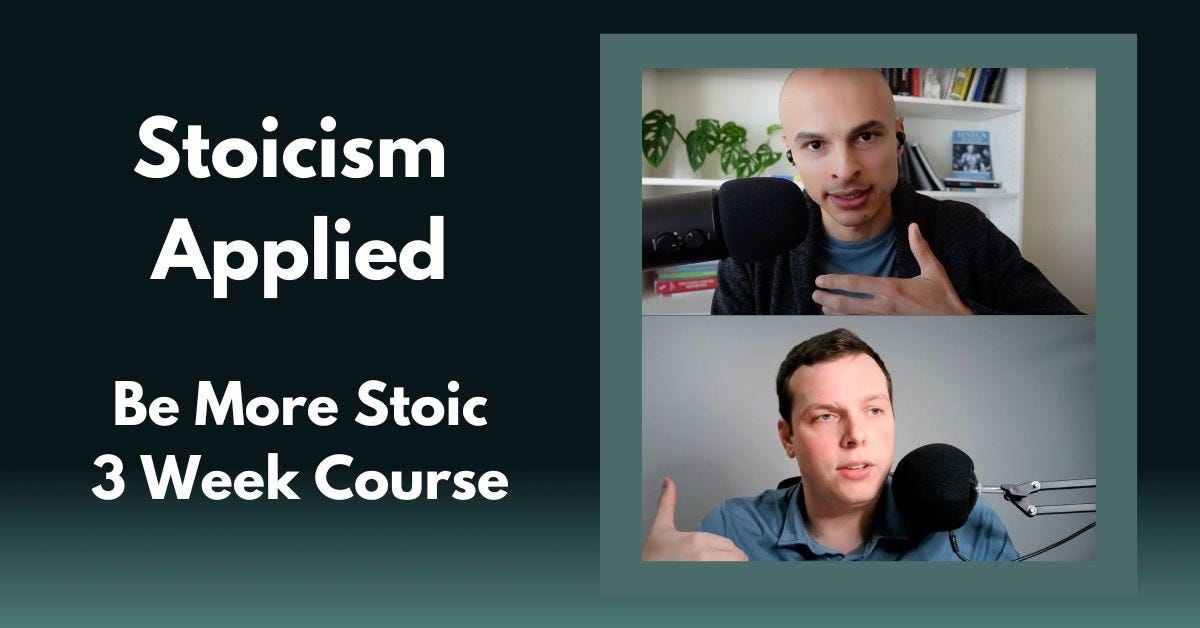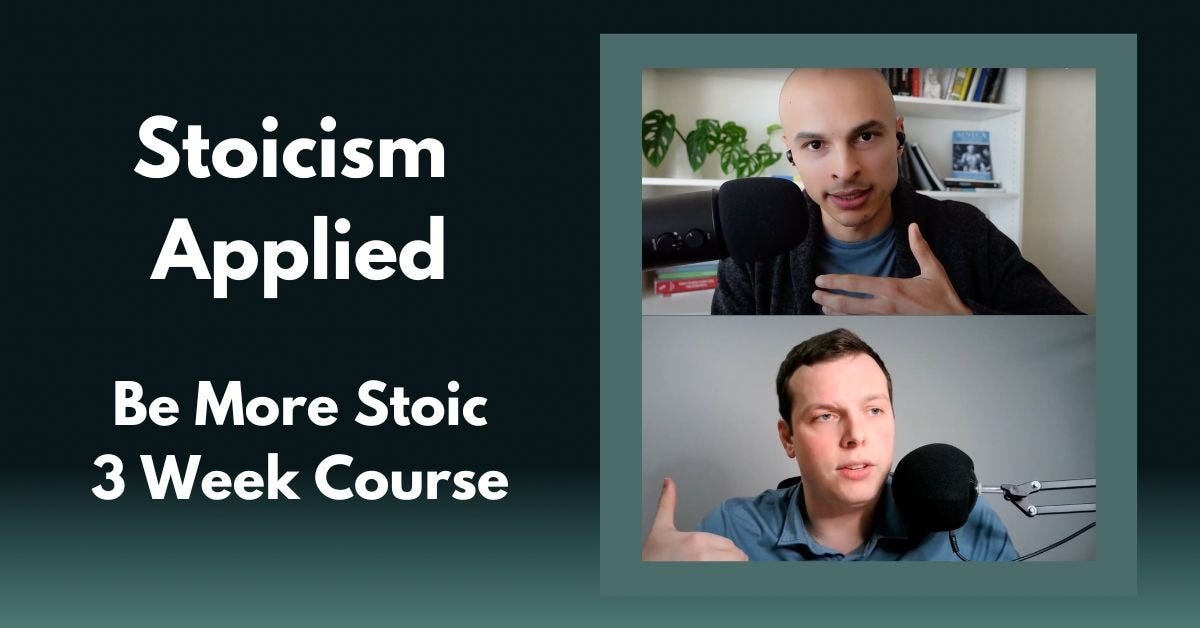The Discipline of Desire
How to dream
Welcome to The Stoa Letter, the newsletter on Stoic theory and practice.
Every week we share two emails to help you build resilience and virtue with ancient philosophy. Each email includes one meditation on Stoic theory, one action to do in order to become more Stoic, and links to the best resources we’ve found.
🏛️ Theory
All the happiness you are seeking by such long, roundabout ways: you can have it all right now .... I mean, if you leave all of the past behind you, if you abandon the future to providence, and if you arrange the present in accordance with piety and justice.
Marcus Aurelius, Meditations 12.1
The Stoic discipline of desire is all about aligning your desires with the good.
At a first pass, this involves desiring to excel in what is up to us and embracing everything that is not.
We can go further, as the Roman emperor and Stoic Marcus Aurelius does, by reflecting on the virtues of piety and justice.
With piety, we can willingly accept what fate and fortune throw our way. Think of it as reverence or willing acceptance of the state of things. Our very desires can be molded so that we embrace whatever occurs.
Meditate on the mantra:
“Let things come, let them be, and let them go.”
With justice, we can make excellent decisions in any circumstance we’re presented with. The discipline of desire involves setting the target of being an excellent person. With the discipline of action, we follow through. As Marcus Aurelius says elsewhere:
In all that you do, make sure that you do not act at random, or otherwise than Justice herself would act.
Marcus Aurelius, Meditations 12.24
Justice and piety, in the present, are all one needs.
🎯 Action
Pause today and, if you can, take on an attitude of piety, reverence, or acceptance.
🎺 Stoicism Applied – The Course
Michael Tremblay and I running a live course this Oct-Nov!
In it, we’ll take a deep dive into all three Stoic disciplines, including the discipline of desire. It’s for anyone looking to seriously become more Stoic with others. We’ve already had a number of students sign up.

Stoicism Applied by Caleb Ontiveros and Michael Tremblay on Maven
Build resilience and virtue with ancient philosophy.
maven.com/stoa/stoicism-applied

🔗 Resources
💬 A useful reminder: the Hymn of Cleanthes. Seneca renders it as:
The willing soul fate leads, but the unwilling it drags along.
Seneca, Moral Letters 107
3️⃣ Want to learn more about the three disciplines? Read the previous introduction here.
📖 The translations of Marcus Aurelius above come from Pierre Hadot’s The Inner Citadel. To be frank, the book is written in an academic and difficult style. Consider yourself warned! Nonetheless, it’s truly one of the best works on understanding Marcus Aurelius’s Meditations.
What did you think about today's letter?
🏆️ Share The Stoa Letter
If you find what we’re doing useful, please share it. Just have people sign up with your link below.
Share The Stoa Letter
{{rp_personalized_text}}
Or copy and paste this link to others: {{rp_refer_url_no_params}}
Get hundreds of Stoic meditations and lessons with the Stoa app (free download)

